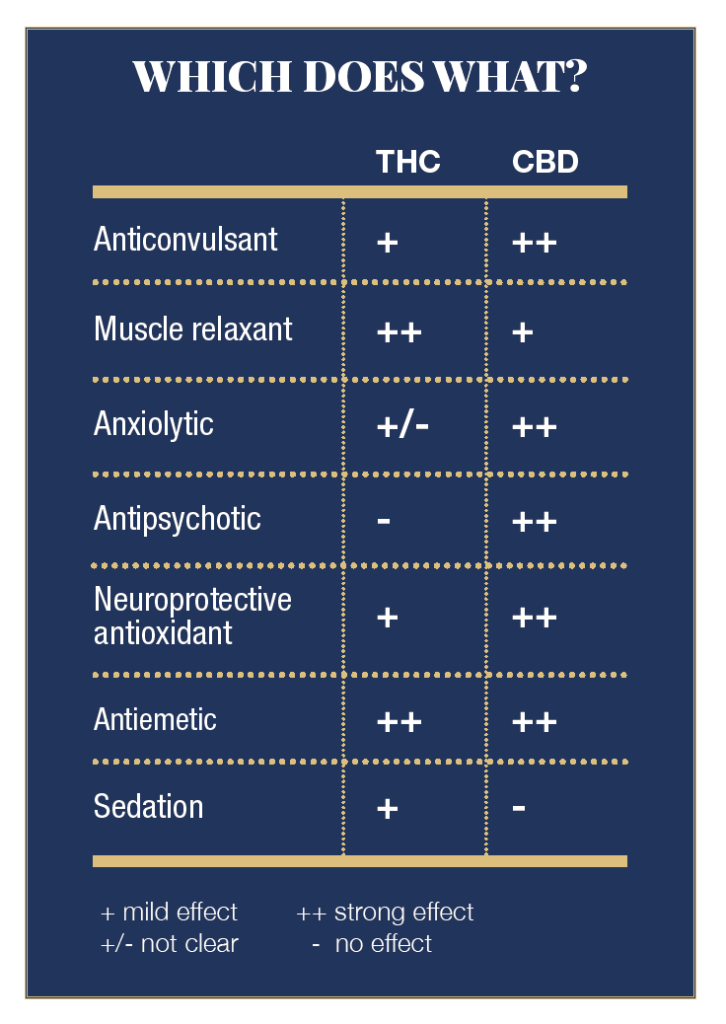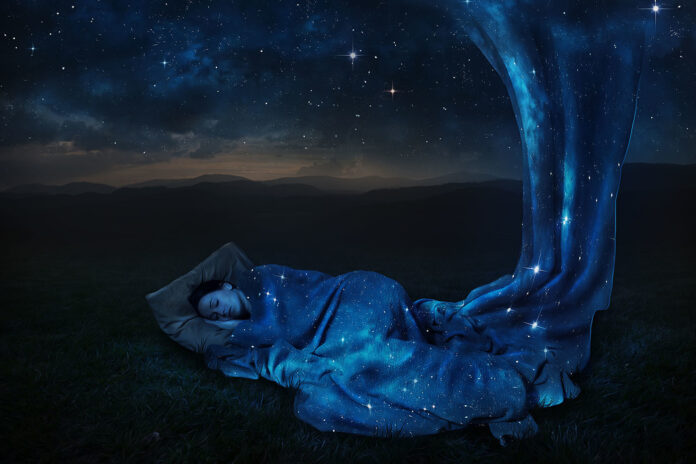Oh, the miraculous CBD. I am sure you have noticed the media hype and thousands, if not millions, of people claiming CBD has cured chronic diseases from insomnia to cancer. However, as much as I love CBD to soothe muscle inflammation, the substance isn’t everything it’s made out to be, particularly when it relates to sleep. Much like with CBN, there are a lot of companies saying CBD supports sleep. But, unfortunately, the scientific community knows CBD as a wake-promoting cannabinoid. Numerous studies and clinical trials support this position.
Science weighs in
In 2004, research performed in the Department of Psychiatry at the Warneford Hospital in Oxford, England, showed formulations using a one-to-one ratio of THC to CBD (15mg THC, 15mg CBD) appeared to have alerting properties because they increased awake activity during sleep, while the administration of 15mg THC alone appeared to be sedative. Likewise, a study published in the Neurochemical Research Journal in 2005 stated, “While previously thought to be sedating, recent clinical research has confirmed CBD is activating and that it counters sedative effects of THC.”
In another study published in Behavioral Neurosciences Journal in 2008, the authors also reported using CBD-only formulations enhanced wakefulness and decreased slow-wave sleep and REM sleep. Furthermore, CBD increased alpha (e.g., wakeful relaxation) and theta (e.g., focus and self-awareness) brain waves but diminished delta brain waves (deep sleep). So, taking CBD could be great for a meditation retreat but unsatisfactory for a good night’s sleep.
In a 2009 study by the Department of Neurosciences and Behavior at the University of São Paulo, Brazil, researchers administered high doses (300mg) of CBD and could not find any effect on sleep architecture, indicating CBD alone does not interfere with the sleep cycle. However, this dosage had an anxiolytic (anxiety-reducing) effect. Thus, CBD potentially may be useful as a therapeutic option for a wide range of disorders. In 2018, the same researchers replicated the experiments and pointed out acute administration of an anxiolytic dose of CBD is safe and appears to prevent somnolence (sleepiness).
In 2011, another study indicated CBD in a rat’s brain enhances alertness and suppresses sleep. This effect was accompanied by an increase in extracellular dopamine levels. Furthermore, CBD prevented a sleep rebound after total sleep deprivation. Normally, after an extended sleepless period an individual’s sleep increases above normal levels, but CBD prevents the increase. So, it might be a very bad idea to take CBD while suffering the effects of jetlag.
Clinicals trials in Mexican hospitals in 2014 pointed out the potential for using CBD as an aid in treatment of somnolence and other disorders. CBD possesses pharmacological potential, including anxiolytic, antipsychotic, antiemetic (anti-nausea and -vomiting), and anti-inflammatory properties.
Studies published in 2018 in Neurochemical Research Journal discovered CBD enhances wake-related compounds such as the neurotransmitters dopamine, serotonin, epinephrine, and norepinephrine. All together, these data demonstrate CBD increases acetylcholine (ACh) levels in a brain region related to wake control. Motor neurons (cells that control movement) in the nervous system release ACh in order to activate muscles. Additionally, previous reports of subjective feelings by healthy volunteers after taking CBD (1mg/kg) showed a significant increase in “clear-minded” and “quick-witted” feelings.
So, does CBD support sleep?

Administration of CBD has been shown to have differential effects on sleep based on dosage. Indeed, low-dose CBD has a stimulating effect while, contrary to findings published in 2009, high-dose CBD can have a sedating effect. In a study among individuals with insomnia, results suggested daily administration of 160mg CBD increased total sleep time and decreased the frequency of arousal during the night, while low-dose CBD, as mentioned before, was associated with increased wakefulness.
In 2008, work published in the Brazilian Psychiatry Journal (Revista Brasileira de Psiquiatria) demonstrated the sedative effects of CBD but only in doses of 160mg to 600mg and in patients with post-traumatic stress disorder (PTSD). Another study produced similar results: Doses ranging from 10mg to 40mg per kg (600mg to 2400mg for an average adult human) increased the total percentage of sleep in adult rats. This research was published in the Journal of Psychopharmacology in 2013.
Finally, these results were reproduced in 2017 in a collaboration between Canada, the Netherlands, and Singapore, but in individuals with PTSD and Parkinson’s disease.
If not for sleep, for what is CBD useful?
Evidence published in the Journal of Neuropsychopharmacology in 2020 suggests CBD has antiepileptic potential. Moreover, in human studies CBD was associated with reduced PTSD symptomatology. Antidepressant properties of CBD also were revealed in animal models of depression, and the anti-addictive potential of CBD was demonstrated in animal models with cannabis, opioid,
alcohol, methamphetamine, and cocaine use disorders. In small-scale clinical trials in humans, CBD reduced cigarette consumption and heroin craving.
In conclusion, CBD possesses many pharmacological and precognitive or alerting properties, whereas it has been well established THC has sedative effects and promotes sleep. Those who take CBD-only products should not expect to fall asleep quickly unless they take 160mg to 2,400mg before bed—and even then, some research has shown high doses of CBD-only formulations (300mg) have no effect on the sleep cycle.
CBD produces many other effects that can improve quality of life but, in light of existing research, it may be worth rethinking whether sleep support should be included on packaging or in marketing messages. Both the Food and Drug Administration and the Federal Trade Commission have indicated they will vigorously enforce regulations about misleading health claims.

Carolina Vazquez Mitchell is the creator of dreamt, the cannabis sleep aid Vice called “one of the year’s most helpful innovations.” She created the formula to treat her own insomnia during her chemistry PhD studies at University of Southern California. Vazquez Mitchell has developed more than fifty cannabis products, ran a cannabis testing lab, and was named one of Dope magazine’s Outstanding Women in Cannabis.













[…] From citrusy scents and sweet-but-savory flavors to indica dominance and THC content that sits on the higher side, this list helps the entire industry understand what consumers in one of the most developed markets desire: stress and anxiety reduction, dessert-like flavors, earthy and gassy scents, and reliable herbal solutions to help with sleep. […]